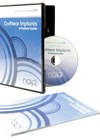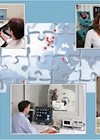Audiology features
Human immunodeficiency virus and hearing impairment
With an estimated 36.7 million individuals living with HIV / AIDS and literature reporting that these conditions contribute to hearing loss, it is surprising that more focus and resources are not employed to tackle this major hearing health concern. Yolandé...
OTC hearing aids
The potential for the deregulation of hearing aid technology, through the Over-The-Counter Act has led to a tremendous amount of opinions and views from all stakeholders in the US. You don’t have to go far on the internet, social media...
Why screen for hearing loss in adults?
Introduction Hearing loss affects over 10 million people in the UK – one in six of the population. Of over 50-year-olds 41.7% are estimated to have some form of hearing loss. This rises to 71.1% of over 70-year-olds, over half...
Adult hearing screening: consideration for a holistic model
Background Adult-onset hearing impairment is a highly prevalent and undertreated chronic problem that poses a significant burden of disease worldwide [1]. It is usually gradual and diagnosed and managed approximately 10 years after adults have first experienced hearing difficulties [2]....
Screening for hearing loss in primary care
Hearing impairment is one physical disability that is increasing in prevalence in society in general, and in older adults in particular. Approximately 34 to 36 million Americans report suffering from some degree of hearing impairment with the number rising to...
Screening for hearing aid fittings – an approach for primary care
Introduction The communication difficulties related to hearing loss can lead to ‘depression, social withdrawal and problems with employment and access to information sources’ [1]. Furthermore, unmanaged hearing loss is associated with dementia, a poorer quality of life, depression, anxiety and...
Adult hearing screenings has counselling opportunities
Adult hearing screening has its challenges, particularly time constraints. Because the process itself is brief, we could efficiently screen dozens of adults per hour; at events such as health fairs, it’s tempting to march people through screenings as quickly as...
Cochlear implant referral: how can we do better?
Considerable progress has been made over the last few years in improving access to cochlear implantation (CI) in the UK for children and adults with severe to profound deafness. But we are still not treating children early enough, and we...
European funding for the tinnitus research network TINNET
Over 70 million people in Europe experience tinnitus, and for seven million it creates a debilitating condition. Severe tinnitus is often associated with depression, anxiety and insomnia, resulting in an enormous socio-economic impact [1]. It has been estimated that 13...
What does functional neuroimaging tell us about tinnitus?
One of the most common causes of tinnitus is noise exposure, be that either cumulative day-to-day exposure over a lifetime or experience of acute noise trauma such as a loud concert or shooting incident. Observational data indicate that up to...
Selecting and optimising hearing aids for tinnitus benefit: a rough guide
Hearing aids have a relatively long history as tinnitus treatment tools. Saltzman and Ersner reported success in suppressing tinnitus with simple hearing aids in a number of cases as early as 1947 [1]. In an early comprehensive approach to tinnitus...
Are we making progress on tinnitus?
One of the aspects of tinnitus that drew me into it becoming a major theme of my clinical and research work was how little work had been done when I began to see patients in the mid 1980s. This struck...
















